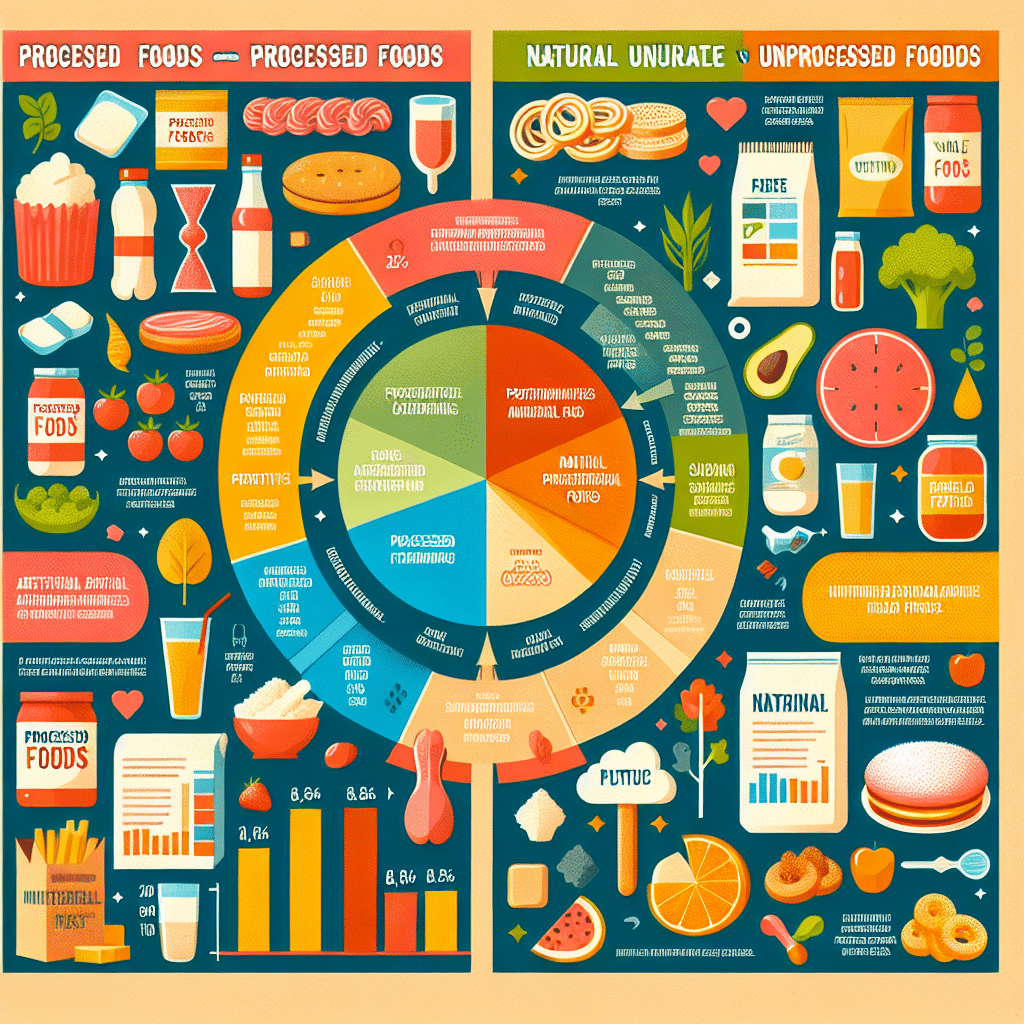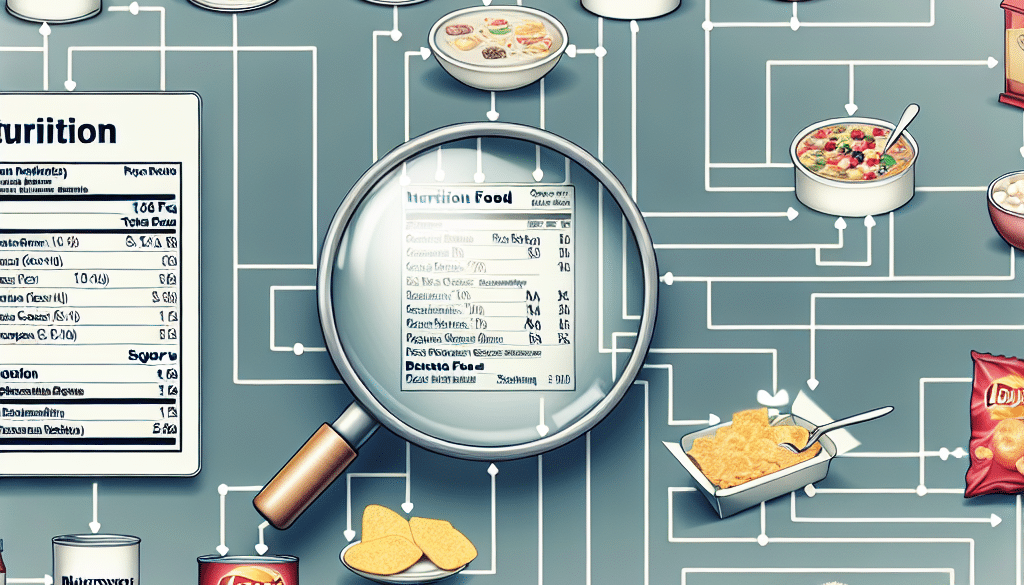The Link Between Processed Foods and Nutrition
-
Table of Contents
- Processed Foods and Nutrition: Understanding the Connection
- Defining Processed Foods
- The Nutritional Profile of Processed Foods
- Case Studies and Statistics
- Processed Foods and Obesity
- Processed Foods and Chronic Diseases
- Strategies for Healthier Eating
- Conclusion: Balancing Convenience and Nutrition
- Enhance Your Diet with ETChem’s Protein Products
Processed Foods and Nutrition: Understanding the Connection

Processed foods have become a staple in modern diets, offering convenience and variety to consumers worldwide. However, the nutritional implications of consuming these foods have been a topic of intense debate among health professionals, nutritionists, and researchers. This article delves into the complex relationship between processed foods and nutrition, providing insights into how these foods impact our health and well-being.
Defining Processed Foods
Before exploring the link between processed foods and nutrition, it is essential to define what constitutes a processed food. Processed foods are those that have been altered from their natural state for safety reasons or for convenience. They can range from minimally processed items like bagged spinach or roasted nuts to more heavily processed foods such as frozen meals, snacks, and sugary drinks.
The Nutritional Profile of Processed Foods
Processed foods often have a lower nutritional profile compared to their whole food counterparts. This is due to several factors:
- Added Sugars: Many processed foods contain high levels of added sugars, which can contribute to various health issues such as obesity, diabetes, and heart disease.
- Refined Grains: Processing often removes the bran and germ from grains, leading to a loss of fiber, vitamins, and minerals.
- Sodium: High amounts of sodium are frequently added to processed foods to enhance flavor and preserve the product, which can lead to hypertension and cardiovascular problems.
- Trans Fats: Some processed foods contain trans fats, which have been linked to an increased risk of heart disease.
- Preservatives and Additives: Chemicals used to preserve, color, texture, and enhance flavor may have adverse health effects.
Case Studies and Statistics
Several studies have highlighted the impact of processed foods on health. For instance, research published in the BMJ found that a higher consumption of ultra-processed foods is associated with a higher risk of cardiovascular, coronary heart, and cerebrovascular diseases. The Global Burden of Disease Study also identified poor diet, particularly high in processed foods, as a leading factor in non-communicable diseases worldwide.
Processed Foods and Obesity
Obesity is a growing global epidemic, and processed foods are often implicated in its rise. These foods are typically high in calories, fats, and sugars while being low in nutrients, leading to overconsumption and weight gain. A study by the National Institutes of Health found that participants on an ultra-processed diet consumed more calories and gained more weight than those on a whole foods diet.
Processed Foods and Chronic Diseases
The consumption of processed foods has been linked to an increased risk of chronic diseases. For example, processed meats like bacon and sausages have been classified as carcinogenic by the World Health Organization. Additionally, diets high in processed foods have been associated with an increased risk of type 2 diabetes, heart disease, and certain types of cancer.
Strategies for Healthier Eating
While processed foods are convenient, there are strategies to mitigate their negative health impacts:
- Read Labels: Understanding nutrition labels can help consumers make better choices by avoiding foods with high levels of sugar, sodium, and unhealthy fats.
- Choose Minimally Processed Foods: Opt for foods that are less processed, such as fresh fruits and vegetables, whole grains, and lean proteins.
- Cook at Home: Preparing meals at home allows for control over ingredients and can reduce the consumption of processed foods.
- Plan Meals: Planning ahead can reduce reliance on convenience foods and encourage healthier eating habits.
Conclusion: Balancing Convenience and Nutrition
In conclusion, while processed foods offer convenience, their impact on nutrition and health can be significant. By understanding the link between processed foods and nutrition, consumers can make informed choices that support their health and well-being. It is crucial to balance the convenience of processed foods with the nutritional benefits of whole foods to maintain a healthy diet.
Enhance Your Diet with ETChem’s Protein Products
For those looking to improve their nutritional intake, ETChem’s protein products offer a high-quality source of protein. Their range of collagen products, including marine, fish, bovine, and chicken collagen, provides a neutral taste and instant solubility, making them an excellent addition to a balanced diet. Whether you’re involved in sports nutrition, weight management, or general health and wellness, ETChem’s protein solutions can help meet your dietary needs.
About ETChem:
ETChem, a reputable Chinese Collagen factory manufacturer and supplier, is renowned for producing, stocking, exporting, and delivering the highest quality collagens. They include marine collagen, fish collagen, bovine collagen, chicken collagen, type I collagen, type II collagen and type III collagen etc. Their offerings, characterized by a neutral taste, instant solubility attributes, cater to a diverse range of industries. They serve nutraceutical, pharmaceutical, cosmeceutical, veterinary, as well as food and beverage finished product distributors, traders, and manufacturers across Europe, USA, Canada, Australia, Thailand, Japan, Korea, Brazil, and Chile, among others.
ETChem specialization includes exporting and delivering tailor-made collagen powder and finished collagen nutritional supplements. Their extensive product range covers sectors like Food and Beverage, Sports Nutrition, Weight Management, Dietary Supplements, Health and Wellness Products, ensuring comprehensive solutions to meet all your protein needs.
As a trusted company by leading global food and beverage brands and Fortune 500 companies, ETChem reinforces China’s reputation in the global arena. For more information or to sample their products, please contact them and email karen(at)et-chem.com today.




